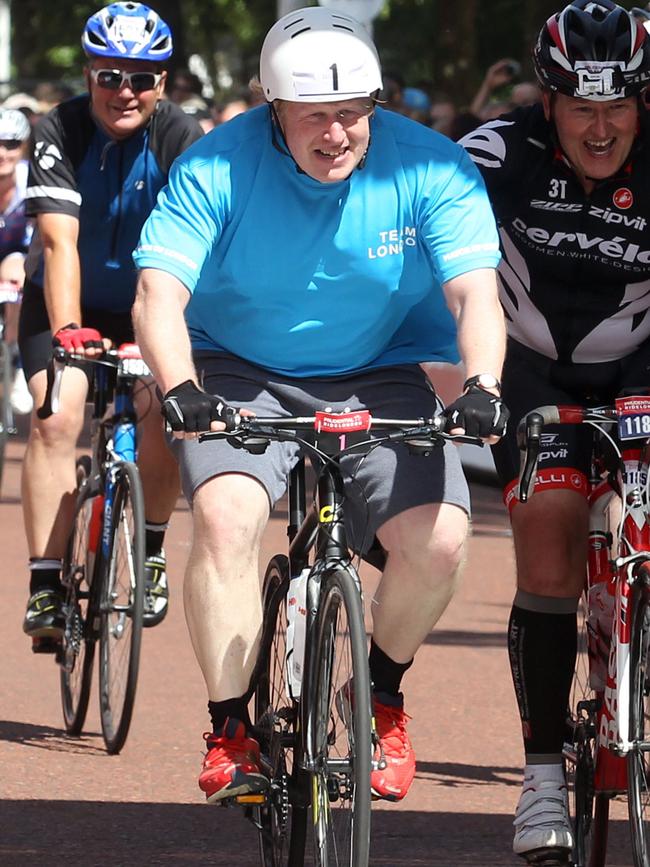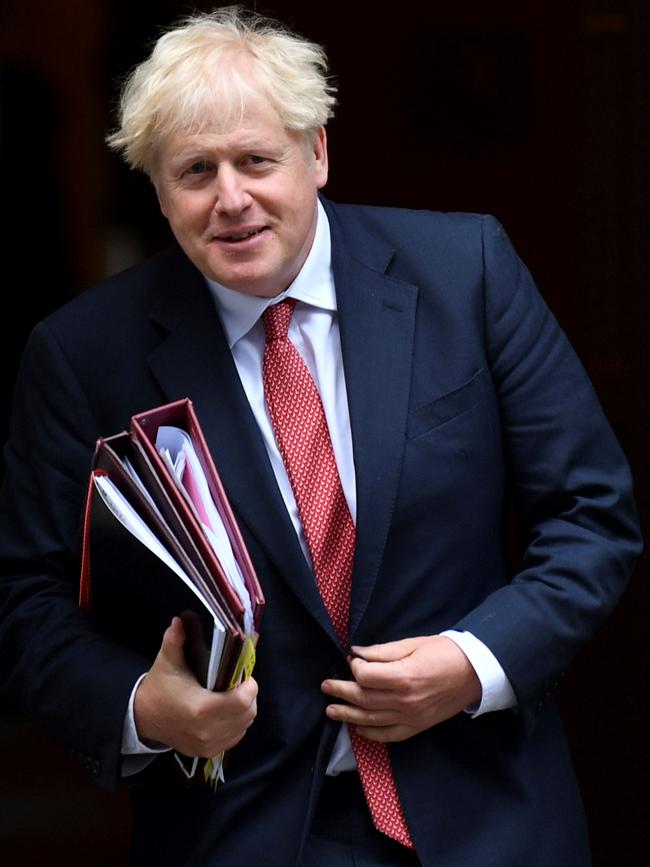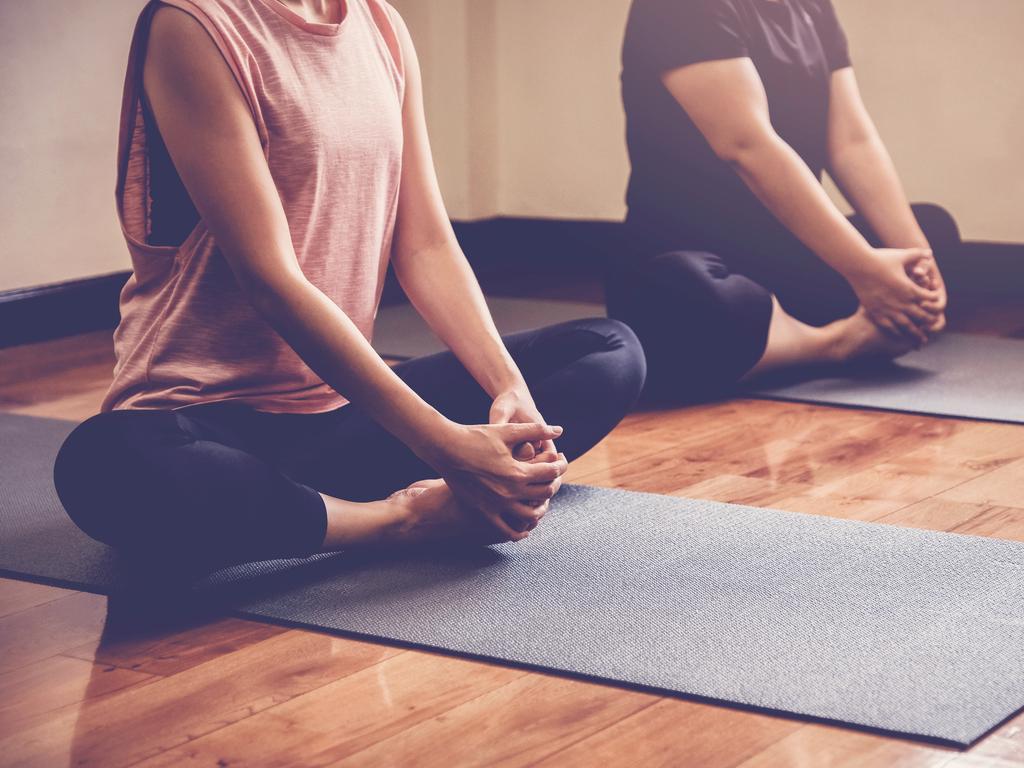How to get an overweight man fit
Harry Jameson is the trainer credited with helping Boris Johnson to lose weight using a unique approach

“Don’t be a fatty in your fifties,” Boris Johnson warned, when asked the best way to avoid coronavirus — and it’s clear that his brush with the illness has inspired him to take his own advice.
Pictured leaving No 10 last week, the British Prime Minister, 56, looked much slimmer than his pre-COVID self. He has said he is “more than a stone down” on the weight he was before his stay in intensive care.

Overseeing this transformation is the celebrity trainer Harry Jameson, who has been spotted running with Johnson near Westminster.
Over the years I’ve tried many different workouts, but I’m intrigued to see what Jameson offers. Not just because of his celebrity status — other clients include the Love Island presenter Laura Whitmore, the actor Dolph Lundgren, and various Premier League footballers — but because his methods seem to go against some of the most popular fitness trends.
Jameson leads me through the kind of program he uses to help his clients to lose weight and achieve optimum health, and I’m surprised to see that I’m going to have to do some old-fashioned cardio and flexibility exercises coupled with a sensible-sounding diet plan.
Out go high-intensity interval training, Boxercise and other hardcore workouts that we are always being told are best for fat-burning and fitness. In their place he introduces longer, slower runs and bike rides — last fashionable at least a decade or two ago — with daily meditation and stretching.
The Move Your Gut program
This means switching my usual thigh-burning sessions on an exercise bike or fast-paced uphill sprints outdoors to more pleasurable, steadier-paced runs.
I struggle to see how this might improve my fitness, until Jameson explains that by slowing down our workouts we reduce the stress we place on our already over-stressed bodies. And that, he says, will have an important effect on gut health, which is an important aspect of fitness that often gets overlooked. It’s not for nothing he calls this the Move Your Gut program.
“We are only just beginning to fully understand the vital role our gut plays in fitness and wellbeing and how high levels of stress and anxiety negatively impact our microbiome, our digestive ecosystem,” he says.
“Too many within the fitness industry have gone the wrong way about dealing with it, advocating the types of activities that raise stress rather than reduce it.”
According to Jameson, who says he has guided “many a top, stressed-out executive” during his 17-year career, the boxing, HIIT training and hardcore circuits traditionally prescribed as the fastest route to fat loss — and a solution for stress and anxiety — can actually exacerbate these problems.
“By always doing these strenuous activities, your body is producing more and more of the stress hormones such as cortisol,” he says.
“Stress has a negative impact on gut health and the hormones it produces are one of the reasons that fat gets stored in the abdominal area, leaving you with a thick middle.”
Slower, more methodical activities switch off this negative stress response, he says.
Running back in vogue
As a keen runner I’m delighted when he tells me to do more of it. Running has, he says, along with cycling and swimming, had a bad rap in recent years, labelled as an inefficient fat-burner compared with strength training and high-intensity classes. But it doesn’t deserve it.

“Steady, rhythmic movements are the best at reducing cortisol and putting your body and gut in a prime position for fat-burning,” Jameson says. “Running is amazing because it burns calories and, provided you don’t go flat out every time, elevates the heart rate optimally so that it doesn’t get your body stressed. Rowing, walking, cycling and swimming will have a similar effect.”
The latest research appears to back up his approach — Jameson studied sports science and psychology at Liverpool Hope University before becoming a personal trainer — with emerging studies showing a strong association between this type of exercise and gut health. In one six-week trial it was discovered that walking, jogging or cycling for 30-60 minutes three times a week produced changes in the microbiome that are believed to reduce gut inflammation.
Another trial, published in the journal Medicine and Science in Sports and Exercise, found that mice transplanted with gut bacteria from mice that were allowed to run were better able to ward off inflammation than those given gut bugs from sedentary rodents.
“There’s growing evidence that suggests a diet and fitness plan works best if your gut is healthy,” Jameson says. “And that the right sort of diet and exercise helps to change the composition of your gut microbiome in a positive way.”
As with his other clients, he tells me I should run, cycle or swim three times a week and also incorporate other “non-negotiables” into my schedule, including a series of simple morning yoga-based stretches.
I really believe I can stick to them and that, he says, is the point. He shows how small changes can make a big difference by simply extending his leg and rotating his foot in both directions — I try it and suddenly realise how stiff my ankles are.
My flexibility definitely needs some work, but, he explains, doing a little every day will bring better results than one lengthy yoga class once in a while.
“Only when you have these basics covered is your body in a position to add supplementary full-body strength training to the equation for optimal results,” Jameson says.
“For too long people have lost sight of the benefits of going long and slow with their exercise, but it is hugely important. If you are only ever going to a Spinning studio or bootcamp and pushing yourself hard, your body and mind never have a chance to recover.”
Eating and breathing
Equally important is diet. Again, he refuses to advocate anything too extreme. Processed and sugary foods are out, of course, replaced by plenty of vegetables, nuts and seeds, pulses, fruits and wholegrains, variety being key.
“I’m not a fan of any particular diet, but just eating as naturally as you can with minimal cooking is the best route,” Jameson says.
He recommends that I take a daily probiotic supplement — he takes Symprove — but says that any supplement that boosts healthy gut bacteria is helpful.
Finally, he asks me to stick to his other staple of a routine of breathing exercises lasting seconds, or 10 minutes of meditation each day, which seems manageable.
None of this is a quick fix. Being kinder to your body brings visible results, but takes time. He says that in four to six weeks I will start to reap rewards in terms of how I look and feel. But the effects are much more likely to be permanent and will benefit both my body and my mind.
The Times







To join the conversation, please log in. Don't have an account? Register
Join the conversation, you are commenting as Logout